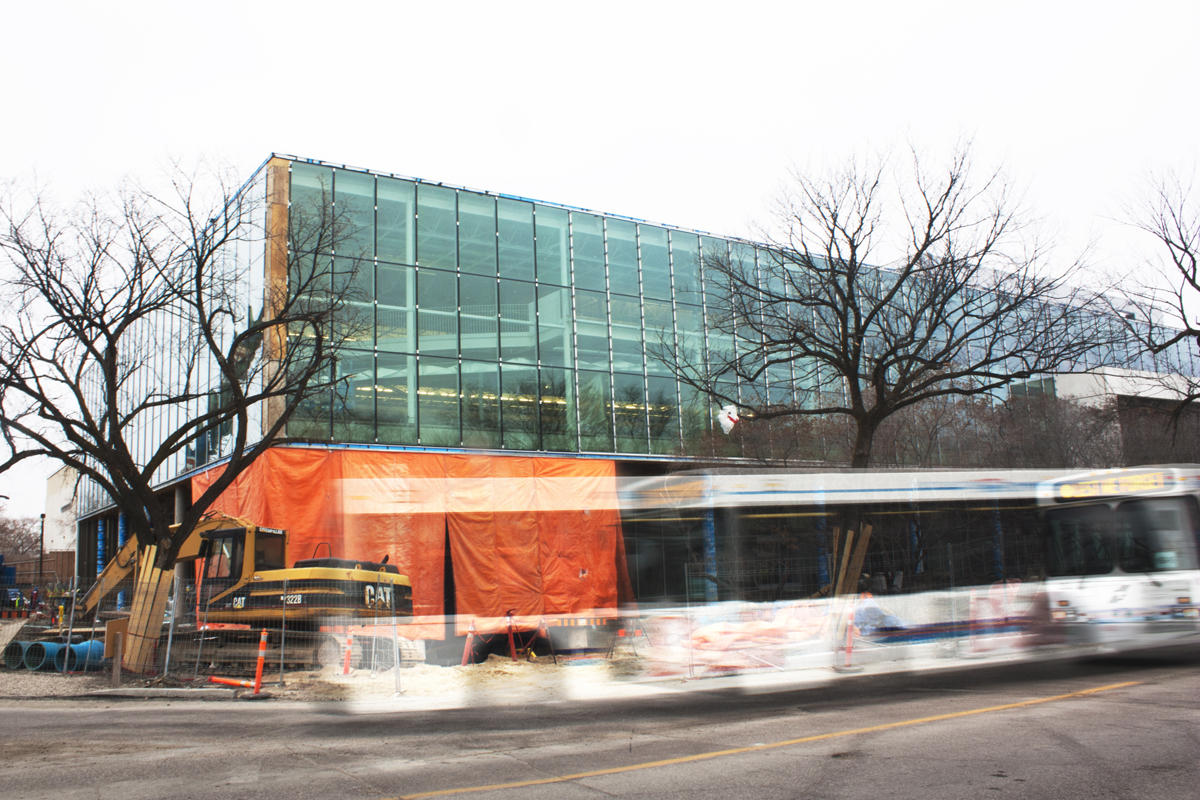An academic discussion on the Israel-Palestine conflict held by a number of University of Winnipeg professors has stirred up controversy and raised questions about academic freedom.
The event took place Nov. 24, the first day of a four-day ceasefire and hostage exchange between Israel and Hamas, and was entitled “Palestine and Genocide: Reflections on Imperialism, Settler-Colonialism, and Decolonization.”
The day saw a teach-in and a roundtable discussion exploring what the event’s description called the genocide in Palestine and its similarities to genocides around the world, including of Indigenous people in Canada.
Winnipeg South Centre MP Ben Carr, who is Jewish, criticized the university in an interview with CBC News, saying the talk failed to provide an opposing perspective for balance and accusing some of the events’ speakers of having “significant antisemitic undertones.”
Carr could not be reached for comment.
Jeff Lieberman, CEO of the Jewish Federation of Winnipeg, called for the event to be cancelled. He said the event was “one-sided” and failed to feature opposing viewpoints.
Lieberman called freedom of speech and academic freedom “an important part of what [universities] do,” but said schools also have a responsibility to not allow speakers who spread antisemitism and “a very tainted view of history.”
“This presentation was held with a number of speakers that did that,” he said.
Lieberman and Carr both pointed to comments by Ghada Sasa, one of the speakers and a former board member of Canadians for Justice and Peace in the Middle East (CJPME), concerning Hamas’ attack on a music festival on Oct. 7.
On Real Talk Ryan Jespersen, Sasa said she had read first-hand accounts from survivors of the attack on the rave who said Israeli forces were responsible for some of the deaths of attendees.
The following day, CJPME released a statement saying Sasa had been suspended from her position on its board, saying “some views that Ms. Sasa has expressed publicly are not aligned with the policies and positions of the organization.”
President of the University of Winnipeg Faculty Association Peter Miller called academic freedom “paramount” and said he didn’t see anything antisemitic in the suggested topics of the event.
Miller disagreed with Carr’s insistence that the event should feature opposing viewpoints, arguing that academic freedom entails taking a specific position and arguing for it.
“In academic articles, people don’t present the opposing viewpoint,” he said. “When academics put together professional conferences, they don’t ensure that there are people arguing for and against things,” he said.
The Manitoba Organization of Faculty Associations released a statement the day before the talk, stating that it was “gravely concerned about comments made by prominent Manitoba politicians” regarding the discussion event, and that critics were attempting to influence university administrators.
“MOFA categorically rejects such interventions by politicians of all parties and in all levels of government,” the statement said.
“Academic freedom requires neither neutrality nor ‘balance’ but entails engagement and commitment to an honest search for knowledge and understanding.”
Judith Norman, professor of philosophy at Trinity University and a member of Jewish Voice for Peace, was one of the speakers at the event. She said concerns about supposed antisemitic themes in the talk are “poorly founded” and distract from what she called an “ongoing genocide in Gaza.”
“As a Jewish person, that distresses me enormously,” she said.
Norman said she has a “family history of fleeing from genocidal violence in Europe,” and that she feels “a Jewish responsibility to bear witness against genocidal violence.”
She argued that the state of Israel tries to suppress criticism of its treatment of Palestinian people and control narratives through “propaganda,” and that post-secondary campuses are often a “site of struggle in Israeli propagandistic attempts to justify” its treatment of Palestinians.
“We have these little struggles over free speech, over freedom of expression that really distract from the central point and amount to an abuse and an attempt to wear out the critics of Israel.”


